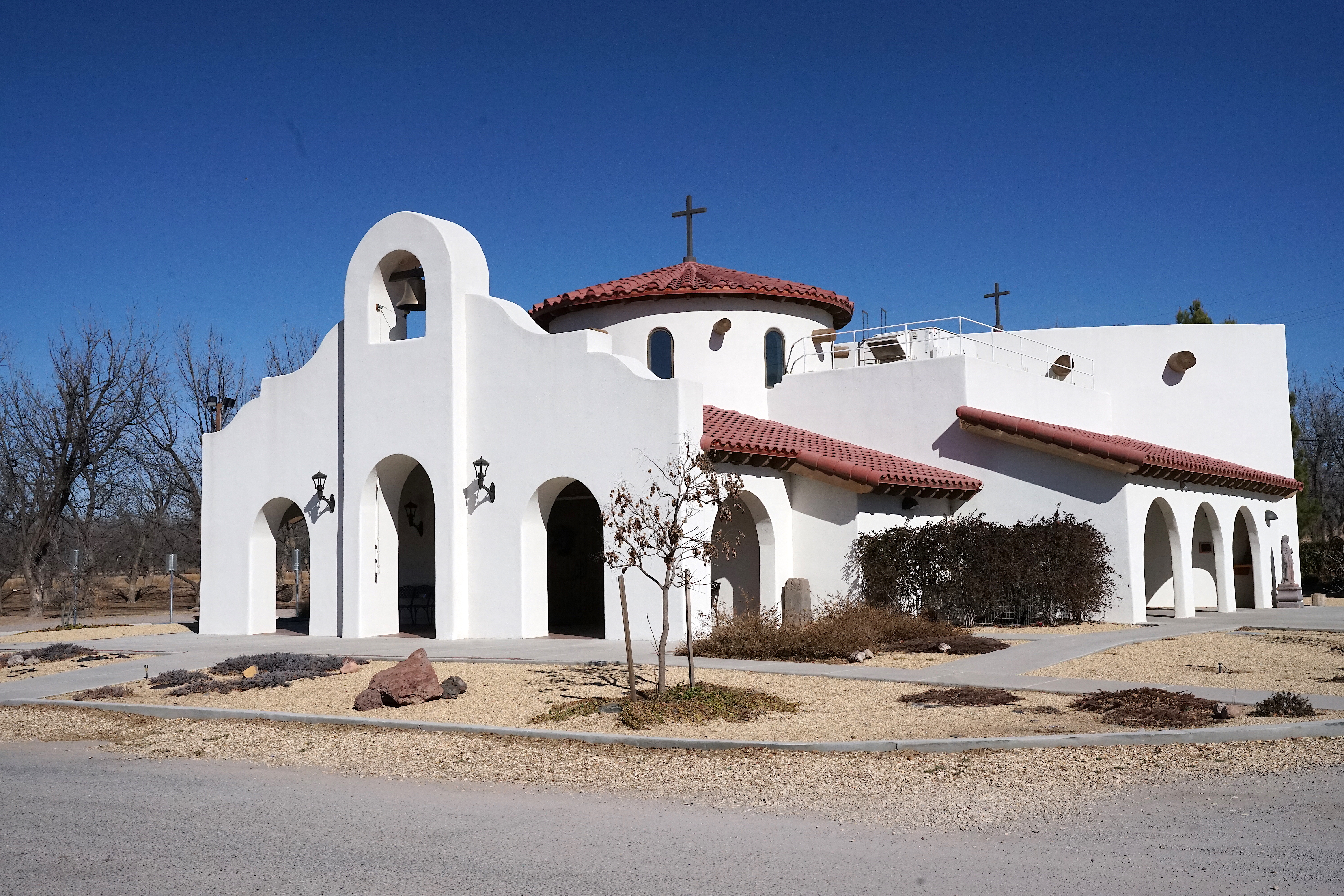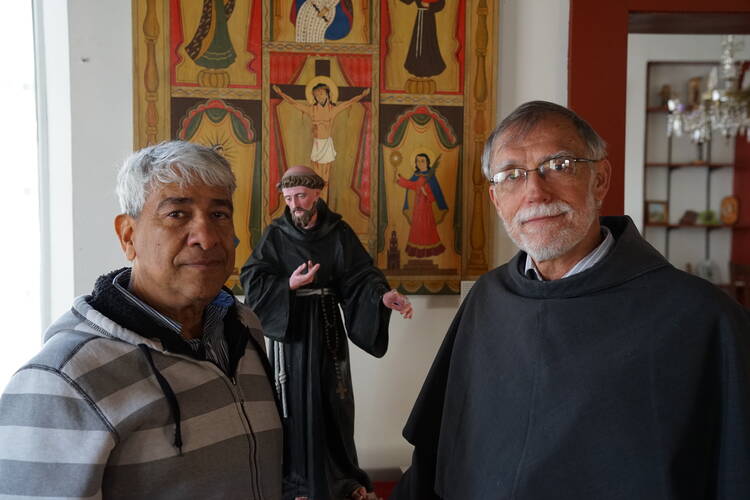Sometimes we feel that to be effective we have to choose between direct service to those in need and working for systemic change. But the Franciscan hospitality we practice at Holy Cross Retreat Center in Mesilla Park, N.M., combines these two aspects of our call to service, assisting individual immigrants and families while at the same time seeking justice for all.
For many years, the center has welcomed those who travel, often from more rural areas, to Mesilla Park for medical treatment. They can stay with us for free when they cannot afford to stay in a hotel. In November 2016, we began inviting asylum seekers, giving them a warm welcome, a room, meals and assistance getting transportation to family members in the United States. The desire of St. Francis to live as a poor man and his outreach to the lepers, the most marginalized people of his time, inspired us to likewise reach out to those who are marginalized in American society, the immigrants. As of July, more than 500 parents and children have graced us with their presence and touched us with their stories and their joy after fleeing violence and severe poverty.
The desire of St. Francis to live as a poor man and his outreach to the lepers inspired us to likewise reach out to those who are marginalized in American society, the immigrants.
In early 2017, we began careful discussions with our Franciscan leadership, our Diocese of Las Cruces and the local community organizing group CAFé about a pressing issue. We wanted to welcome those who are in imminent threat of deportation (because they are undocumented or are at risk of being denied asylum) but want to keep their families together, including some who born in the United States. Many would call this sanctuary, but given that it is not legally completely safe, and that we are doing this out of compassion rather than for political reasons, we choose to call it “Franciscan hospitality.” Two families have stayed with us; one for over a year.

Our experience of working with the undocumented and refugees has certainly deepened our compassion and our awareness of their struggles. It changes hearts to see the looks of relief as they realize they are safe and welcome. I recall a 14-year-old boy crying as he described how he had slept on the ground in Guatemala and then on a concrete floor while awaiting a decision on asylum in El Paso, Tex.—and the joy he expressed at having his own bed at Holy Cross Retreat Center. We have had several retreat groups who, after interacting with the asylum seekers, have expressed to us that the experience changed their views on immigration or refugees.
We are committed to such direct service, but we also feel the importance of working for changes in the systems that can cause human suffering. St. Francis of Assisi was not only inspired to offer compassion by his experience of caring for a leper; he also helped reconcile the mayor and the bishop of Assisi and bring peace between them. He asked the secular Franciscans not to bear arms, thereby helping reduce wars since the feudal lords could no longer command their workers to fight on their behalf.
We are committed to such direct service, but we also feel the importance of working for changes in the systems that can cause human suffering.
In that spirit, we are called as Catholics to work for peace and justice, to speak out for a just wage, for respect for immigrants and refugees, for an end to physical and sexual abuse in the home and in our countries, to care for our mother earth and all creation. This can be done through contacting legislators, participating in rallies, having open discussions about serious issues with neighbors, coworkers and fellow parishioners instead of just avoiding difficult topics, and being informed on how to vote wisely.
Living here near the border, I have protested the Trump administration’s “zero tolerance” policy on unauthorized border crossings and the separation of immigrant families, sat in on immigration hearings in court, tried twice to visit the detention center for children in Tornillo, Tex., spoken to U.S. senators about changes in immigration laws and worked with CAFé to seek an increase in the minimum wage and other actions addressing injustice.
The call to act for justice and seek systemic change for that which often causes need is another dimension of our faith. Amos was a common laborer yet called by the Lord to be a prophet of justice for Israel. Micah challenges us to act justly and to love mercy and walk humbly with our God. Jesus chastised the leaders who lived a comfortable life and refused to help the poor.
There are many examples of hospitality in both the Old and New Testaments. Yet many of us feel more comfortable with direct service and contributions to charity than involvement in systemic change. This type of direct service is vital to the many organizations that work on behalf of the vulnerable in our society. But true change can be brought about only when that which is in our hearts is shared with others, when our voices are raised in unity speaking to justice. As difficult as it can be to publicly take a stand, this is also a vital service to our brothers and sisters in need.
Our experience with Franciscan hospitality has enriched the lives of volunteers and staff by showing us the human impact of our actions and heightened awareness in our area. Let us all be instruments of hope and justice.
[Sign up for Convivir, a new newsletter from America Media. Each week, it will highlight news, culture and trends related to Latino Catholics. To receive this important expert analysis in your inbox, sign up here.]











Thank you for authentically carrying out Francis' teaching to live the Gospel.
Sister Leonette Kochan, OSF